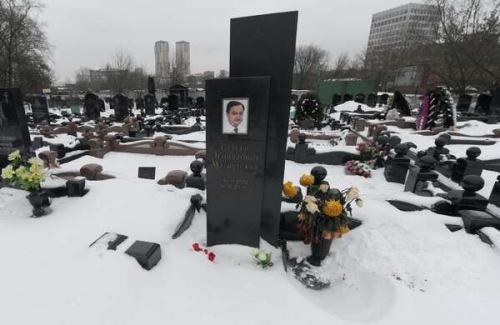
Resources: Governance Power and Political Dissent
Displaying 49 - 60 of 75A Conversation with Ukrainian Film Director Sergei Loznitsa - Creative Horizons Series
Sergei Loznitsa, Ukraine's eminent filmmaker, gains global recognition for his documentaries, which utilize archival footage and are celebrated at international festivals.
A Conversation with Yevgenia Belorusets - Ukrainian Photographer and Author
Yevgenia Belorusets, a Ukrainian photographer and author, highlights vulnerable Ukrainian groups through her visual art, literature, journalism, and activism. Her works include photographs of Donbas miners and a collection of stories titled 'Lucky Breaks', focusing on women affected by the Ukrainian war.
Why We Latch Onto Conspiracy Theories -- And How They Get Out Of Control. - KJZZ
Keith Brown, ASU professor, discusses the origins and impacts of conspiracy theories, especially during election periods, and the role of misinformation.
Kazakhstan protesters weren't happy about government corruption. Will anything change? - The Washington Post
Kazakhstan's President Tokayev blames past leadership for corruption and lack of meritocracy, despite ongoing anti-corruption efforts. Public frustration grows as elite corruption persists, and new laws limit freedoms. The system's foundation on corruption challenges genuine reform.
Biden promises to fight transnational corruption. But will the U.S. target friends as well as foes? - The Washington Post
President Biden emphasizes fighting transnational corruption as crucial for democracy at the Summit for Democracy. Despite tools like the Global Magnitsky Act, the U.S. hesitates to target corrupt allies, impacting stability and democratic integrity in countries like Iraq and Afghanistan.
The importance of 'unlearning' the past - Interview with Global Voices
Keith Brown discusses the critical thinking required in history and anthropology, emphasizing the need to challenge national narratives and explore diverse perspectives to understand nationalism's complexity and its role in societal development, particularly in the Balkans.
From Macedonia to America: Civics lessons from the former Yugoslavia.
The article draws parallels between civil disobedience in Macedonia during the late Communist era and recent American protests. It highlights the nonviolent resistance in Vevcani against unfair governmental actions, reflecting on its lessons for contemporary movements in the U.S. advocating for police reform and accountability. Theconversation.com
Disinformation and Democracy: The Columbian Experience
The article explores the impact of disinformation on Colombia's democracy, particularly during the 2016 peace agreement plebiscite and the 2018 presidential election. It highlights the use of social media and WhatsApp to spread false narratives, influencing public opinion and electoral outcomes. items.ssrc.org
Wildfire Disinformation Narratives with Dr. Steve Corman
The podcast 'Misinfo Weekly' discusses misinformation around the recent wildfires in California and Oregon, highlighting how rumors attribute these fires to both left and right-wing activists, influenced potentially by Russian disinformation tactics. ASU Library | Podcast
Alexei Navalny leads Russians in a historic battle against arbitrary rule, with words echoing Catherine the Great
Alexei Navalny, a prominent critic of Vladimir Putin, has inspired mass protests across Russia against government corruption and for civil liberties, despite facing arrests and an assassination attempt. His actions resonate with historical calls for a rule-of-law based, normal European country. Theconversation.com
The US Doesn't need to wait for an invasion to impose sanctions on Russia - it could invoke the Magnitsky Act now
The article discusses potential U.S. sanctions on Russia under the Magnitsky Act, amid tensions at the Ukraine border. It highlights the act's targeting of human rights abuses and suggests preemptive action against Putin's regime to deter further aggression and focus on human rights. Theconversation.com
The Politics of Prosecuting Putin
Victor Peskin explores U.S. hesitancy to prosecute Putin for aggression, highlighting concerns about setting precedents affecting U.S. actions. Despite potential benefits of an indictment, complexities of international law and politics influence the decision. Academicminute.org










